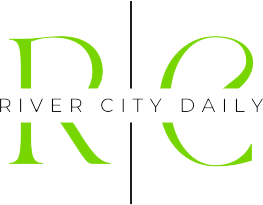Fargo, North Dakota – We can learn a lot about our health from our DNA. For this reason, the All of Us Research Program at the National Institutes of Health is sending health-related DNA data to thousands of individuals around the country.
More than 3,500 individuals have signed up in Essentia Health service areas since the All of Us Research Program and Essentia Health teamed in 2018.
“Our partners here at Essentia who have joined the All of Us Research Program and agreed to share their information are supporting scientific discoveries that would not be possible without this unique valuable resource,” said Dr. Steve Waring, All of Us Research Program principal investigator for the Essentia Institute of Rural Health. “This also represents an opportunity to learn even more about their own health.”
What conclusions may participants draw from these findings? Participants’ risk for significant medical illnesses such as certain malignancies or heart conditions can be revealed via the “Hereditary Disease Risk” report. Participants in the “Medicine and Your DNA” survey can learn whether their DNA may alter how well-known medications, particularly those used to treat disorders like diabetes and depression, function for them.
To determine the most effective manner to communicate health-related results, all of Us collaborated with numerous specialists and organizations. To protect participants’ privacy, they created a thorough permission process and put in place unique privacy and security safeguards.
Additionally, the program sees to it that participants receive the assistance they require. A genetic counselor is available for consultation for those who have concerns about their results. Genetic counselors can respond to inquiries and assist in outlining what participants’ test findings can and cannot reveal.
The goal of the All of Us Research Program is to advance medical advancements and health research to enable personalized care, prevention, and treatment for each and every one of us. In order to create one of the largest and most diverse biomedical data repositories of its type, the program will collaborate with at least 1 million individuals who represent a variety of the United States. Researchers are given access to data to advance their understanding of the biological, environmental, and behavioral components that affect health and disease.











